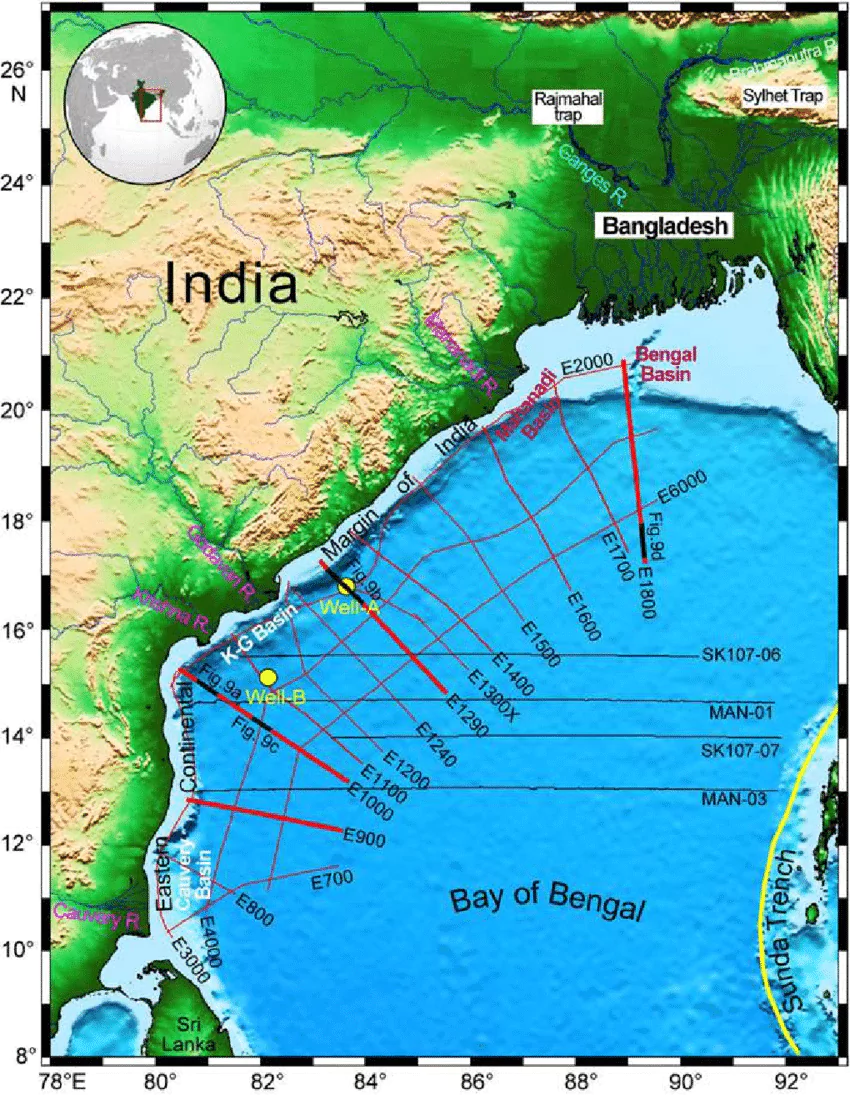Strategic Shift in Bay of Bengal
The Bay of Bengal is emerging as a critical strategic arena in the Indo-Pacific region. Recent developments in Bangladesh, especially in light of Sheikh Hasina's governance challenges and China’s expanding influence, have raised concerns for India's maritime security and regional stability.
Political Situation in Bangladesh
- Sheikh Hasina’s leadership has recently faced instability, with allegations that Nobel laureate Muhammad Yunus, under the patronage of foreign powers, attempted to set up a caretaker government model.
- Although this system was unconstitutional, Yunus reportedly had the backing of international actors, including the US, and significant sections of Bangladesh’s army.
- Statements made by Yunus's advisers suggest a shift in Bangladesh's foreign policy orientation, with an increased tilt towards China, causing concern for India.
China’s Expanding Strategic Footprint
China has substantially increased its stakes in Bangladesh’s infrastructure sector, military capabilities, and economic investments.
Reports indicate that:
- China has been involved in developing military bases and supporting naval facilities in Bangladesh.
- Infrastructure projects under the Belt and Road Initiative (BRI) are facilitating Chinese access to the Bay of Bengal.
- Discussions have been reported regarding the establishment of PLAN (People’s Liberation Army Navy) logistics bases in Bangladesh's ports.
- Additionally, China has encouraged Bangladesh to consider itself the "guardian of the ocean" in the eastern Indian Ocean region, offering strategic alternatives to traditional Indian influence.
Threat to Indian Maritime and Strategic Interests
Bangladesh’s geographic position is crucial for India’s connectivity to its Northeastern states.
Key threats highlighted include:
- Control of the narrow strip near Chicken’s Neck (Siliguri Corridor): Bangladesh’s territory south of this region is vulnerable, and Chinese influence here could threaten India’s strategic connectivity.
- Access to St. Martin’s Island: Located close to India’s eastern coastline, enhanced Chinese presence here could pose naval challenges.
- Kaladan Multimodal Project Bypass: China is promoting alternative routes bypassing Bangladesh to connect to India's Northeast through Myanmar, undermining Indian projects.

The Role of the United States
- The US has shown an active interest in the evolving dynamics of Bangladesh, concerned about China's growing footprint.
- US generals visited Bangladesh when Yunus traveled to China, indicating heightened American monitoring.
- The US has also been supporting Myanmar and other Southeast Asian nations through military and humanitarian aid, aiming to counterbalance China's advances.
- However, American actions have not fully deterred China’s deepening influence in the region.
Emerging Security Concerns
Several security risks for India and regional stability emerge from these developments:
- Possible militarization of the Bay of Bengal through Chinese naval bases.
- Strategic encirclement of India ("String of Pearls" strategy) gaining more strength.
- Increased vulnerability of India’s Northeastern states to external pressures.
- Potential for instability within Bangladesh itself, affecting regional security dynamics.
Strategic Imperatives for India
Given the growing Chinese influence and the shifting political scenario in Bangladesh, India must take proactive steps:
- Strengthening ties with Bangladesh: India should enhance cooperation in economic, security, and infrastructural fields with Bangladesh.
- Engagement in regional multilateral forums: Forums like BIMSTEC and IORA (Indian Ocean Rim Association) should be actively used to counterbalance China's influence.
- Focused development of Northeastern India: Improved infrastructure, trade linkages, and strategic projects must be accelerated to reduce dependence on vulnerable routes.
- Additionally, India must also leverage its historical, cultural, and economic ties with Bangladesh to maintain a favorable balance of power in the region.
The Bay of Bengal is no longer just a peripheral region but a central zone of geopolitical competition in the Indo-Pacific. The emerging dynamics in Bangladesh, coupled with China’s aggressive strategies, necessitate a recalibration of India's foreign and security policies to safeguard its national interests and ensure regional stability.












